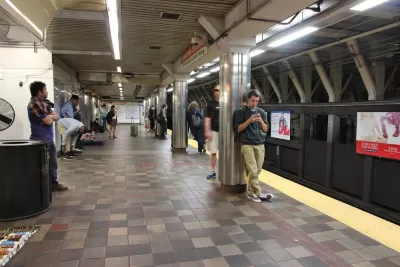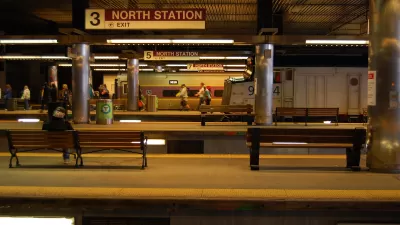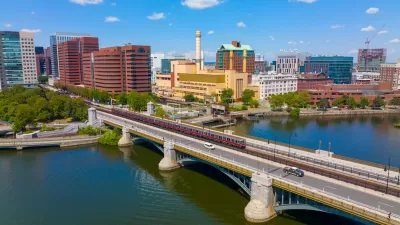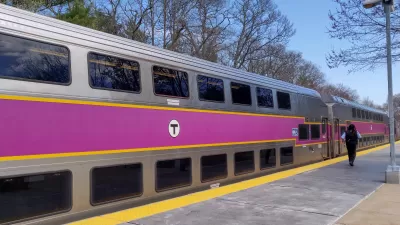With ridership revenue still lagging and fatal incidents plaguing the Boston-area transit agency, one writer argues that state lawmakers must step in to fund upgrades for the aging system.

After multiple fatal incidents, Rich Barlow argues that the Massachusetts Bay Transportation Authority (MBTA) “needs a state rainmaker” to upgrade its infrastructure and improve safety for its riders and operators. “The Massachusetts Legislature, under pressure from inspectors at the Federal Transit Authority, sent Gov. Charlie Baker a state budget with $266 million for correctives, and separate bond bills authorizing $400 million for infrastructure upgrades to meet the feds’ demands.”
According to Barlow, “The budget includes money for new dispatchers to end debilitating shifts of up to 20 hours. Staff shortages forced summer service cuts that likely will leave some commuters cooling their heels into next year.” Meanwhile, a proposal to reduce fares for low-income riders could cost an additional $85 million.
“Ridership remains more than one-third off its pre-pandemic level, depressed by remote work, virus surges, and users’ frayed patience with service problems.” But many commuters remain dependent on public transit, and encouraging transit over cars is one of the most effective ways to reduce greenhouse gas emissions. Thus, solving the agency’s financial woes is incumbent on state leaders, Barlow writes. “Massachusetts leaders long ignored their duty by ignoring an agency that serves more than just commuters; it’s simultaneously an anti-poverty policy — not everyone can afford a car, and those who can’t need transportation to their jobs — and a climate change policy.”
FULL STORY: Good grief, get the T some help

Study: Maui’s Plan to Convert Vacation Rentals to Long-Term Housing Could Cause Nearly $1 Billion Economic Loss
The plan would reduce visitor accommodation by 25,% resulting in 1,900 jobs lost.

North Texas Transit Leaders Tout Benefits of TOD for Growing Region
At a summit focused on transit-oriented development, policymakers discussed how North Texas’ expanded light rail system can serve as a tool for economic growth.

Why Should We Subsidize Public Transportation?
Many public transit agencies face financial stress due to rising costs, declining fare revenue, and declining subsidies. Transit advocates must provide a strong business case for increasing public transit funding.

How to Make US Trains Faster
Changes to boarding platforms and a switch to electric trains could improve U.S. passenger rail service without the added cost of high-speed rail.

Columbia’s Revitalized ‘Loop’ Is a Hub for Local Entrepreneurs
A focus on small businesses is helping a commercial corridor in Columbia, Missouri thrive.

Invasive Insect Threatens Minnesota’s Ash Forests
The Emerald Ash Borer is a rapidly spreading invasive pest threatening Minnesota’s ash trees, and homeowners are encouraged to plant diverse replacement species, avoid moving ash firewood, and monitor for signs of infestation.
Urban Design for Planners 1: Software Tools
This six-course series explores essential urban design concepts using open source software and equips planners with the tools they need to participate fully in the urban design process.
Planning for Universal Design
Learn the tools for implementing Universal Design in planning regulations.
City of Santa Clarita
Ascent Environmental
Institute for Housing and Urban Development Studies (IHS)
City of Grandview
Harvard GSD Executive Education
Toledo-Lucas County Plan Commissions
Salt Lake City
NYU Wagner Graduate School of Public Service





























